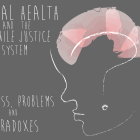
Justice Policy Institute Brings in Advocate as Executive Director
|
An interview with Marc Schindler, the new executive director of the The Justice Policy Institute, a Washington, D.C.-based nonprofit organization.
Juvenile Justice Information Exchange (https://jjie.org/page/328/)

In late September, Torri was driving down the highway with her 11-year-old son Junior in the back seat when her phone started ringing.
It was the Hamilton County Sheriff’s deputy who worked at Junior’s middle school in Chattanooga, Tennessee. Deputy Arthur Richardson asked Torri where she was. She told him she was on the way to a family birthday dinner at LongHorn Steakhouse.
“He said, ‘Is Junior with you?’” Torri recalled.
Earlier that day, Junior had been accused by other students of making a threat against the school. When Torri had come to pick him up, she’d spoken with Richardson and with administrators, who’d told her he was allowed to return to class the next day. The principal had said she would carry out an investigation then. ProPublica and WPLN are using a nickname for Junior and not including Torri’s last name at the family’s request, to prevent him from being identifiable.
When Richardson called her in the car, Torri immediately felt uneasy. He didn’t say much before hanging up, and she thought about turning around to go home. But she kept driving. When they walked into the restaurant, Torri watched as Junior happily greeted his family.
Soon her phone rang again. It was the deputy. He said he was outside in the strip mall’s parking lot and needed to talk to Junior. Torri called Junior’s stepdad, Kevin Boyer, for extra support, putting him on speaker as she went outside to talk to Richardson. She left Junior with the family, wanting to protect her son for as long as she could ...

An interview with Marc Schindler, the new executive director of the The Justice Policy Institute, a Washington, D.C.-based nonprofit organization.

As I write this the nation is celebrating the 237th anniversary of the ratification of the Declaration of Independence. It’s pretty rainy here in Athens, but we will drag the grill under the porch and cook some hot dogs (actually chorizo) and hamburgers later today. Flags are everywhere, on my Facebook feed and on the streets, and there are the usual references to patriotism, freedom, and plenty of pictures of eagles. Maybe it’s the dreary weather, but I find my thoughts turning to the less savory parts of the nations past, and to the ways in which they continue to play out today. One of history’s ironies is that the nation most associated with liberty permitted slavery, and that many of the founding fathers were slave owners.

Louisiana’s Department of Children and Family Services (DFCS) announced Monday it had completed inspecting and licensing the state’s 15 juvenile detention facilities.

In this two-part package, The Chicago Bureau takes a look at the newly reintroduced legislation, analyzing both its prospects for Congressional passage this time around and the concerns raised by some juvenile justice experts, who say that the violence prevention and intervention strategies favored by the Youth PROMISE Act will be of limited effectiveness.

Could the Youth PROMISE Act result in the over-policing of black and Latino communities?

In a pair of feature stories published yesterday, (on Georgia's reform efforts and issues and two young men in the system) JJIE described two modes of intensive at-home treatment that show great promise to improve outcomes for emotionally disturbed youth in the delinquency system, both of which cost far less than incarceration or treatment in a residential treatment center.

If it's possible for a public policy research topic to be "in vogue," juvenile justice has been a craze for the past decade. Bookshelves and flash drives have been filled with statistics and studies of crimes by kids and against kids and what approaches are best at preventing and responding to both. The evidence-based practices evolving from this research have helped reduce crime and the number of incarcerated children in America. The bumper crop of research is due in large part to the confluence of tight state budgets and the commitment of the MacArthur Foundation and several other foundations, which have insisted on the collection of data and analysis -- the evidence of best practices. [Editor’s note: The MacArthur Foundation is a funder of the JJIE.] The latest harvest in that bumper crop has grabbed the attention of policy wonks and could result in even more use of preventative practices that keep kids out of prison cells and deliver successful and less expensive responses at the community level.

Georgia leaders are embracing reform in juvenile justice, but serious gaps and significant roadblocks still prevent many emotionally-troubled youth from receiving the best and most cost-effective care.